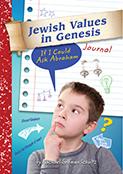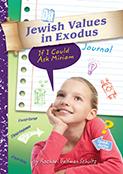- Home
- Play & Learn Home
- Online Enrichment
- Experience Modern Israel
- Israel It's Complicated
- Jewish and Me
- Jewish Holidays Jewish Values
- Jewish Values in Genesis and Jewish Values in Exodus
- Min Ha’aretz
- Our Place in the Universe
- Simply Seder
- The Prophets: Speaking Out for Justice
- Making T'filah Meaningful
- Make, Create, Celebrate
- Yom Haatzmaut Resources
- Hebrew Apps
- About The OLC
- What is the OLC?
- Introduction
- Get Started
- Resources
- OLC Content
- Parent Materials
- See My OLC Classes
- Store
Nine Questions (and a Free Card Game) to Help You Get Beyond the Ten Plagues This Passover
Written by Behrman House Staff, 06 of April, 2016Frogs are a safe, useful, and age-appropriate way to introduce very young children to some of the themes and rituals of Passover. As our children grow older, however, we want to move beyond a focus on these elements to help them develop a deeper understanding of not only the story of Passover, but the values we can discover in its themes.
So how do we help 8-12 year olds take the next step in exploring Passover, to think beyond the story and the rituals? One way is to focus on values. Exploring values in Passover allows children to develop deeper connections between ancient stories and modern living.
Our newest Bible course, Jewish Values in Exodus, creates a guided exploration of the themes of social justice in Moses’ confrontation of Pharaoh on behalf the Israelites, and of thankfulness in the exhilaration the Israelites felt in crossing the Sea of Reeds.
Here are nine guiding questions from these materials that you can use in your discussions in the coming weeks.
1. What motivated Moses and Aaron to confront Pharaoh to ask him to let the people of Israel go?
2. If you could meet Pharaoh, what would you ask him?
3. Do you think the plagues were just? Does justice require punishing those who did wrong?
4. What are some ways we can make our community more just?
5. Why did Moses and Miriam choose the moment after crossing the Sea of Reeds to sing a song of thankfulness?
6. Why does the text add that Miriam led the women in song? Why isn’t it enough to say that Moses sang with the Israelites?
7. The ancient rabbis taught that after the crossing of the sea, angels wanted to sing but God objected because Egyptians had drowned. Why did God object to the angels wanting to sing, but not object to the Israelites singing?
8. Why does Jewish tradition encourage us to begin each day by saying ‘thank you’ (with the Modeh/Modah Ani)?
9. How can Moses’ and Miriam’s songs of thanks inspire us to be thankful in our own lives?
We also created “Camels to Camels Exodus Card Game.” It’s a fun way to help make connections between elements of the Passover story and Jewish values. You can download the cards and directions free from our Values in the Bible web page.
With their focus on character education, our two new courses, Jewish Values in Genesis and Jewish Values in Exodus can help you guide 8-12 years olds to deeper connections between our ancient texts and their modern lives through values. Each course combines throughtful explorations driven by essential questions and includes guidance for a variety of extension activities and projects. And each student journal serves your assessment needs as a portfolio that demonstrates evidence of learning at the end of the year.
At Behrman House we are re-imagining and re-engineering 'textbooks' into teaching and learning guides that promote creativity, communication, and connection.



